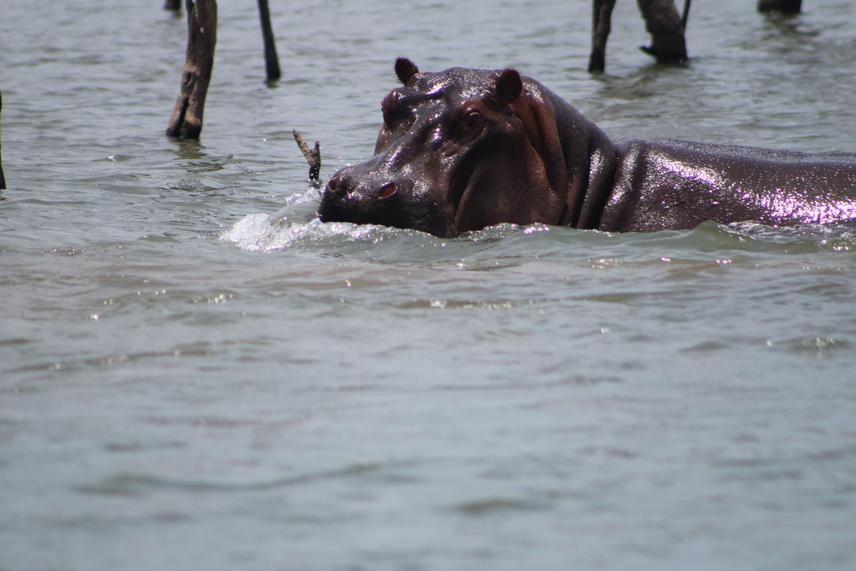Ransford Agyei
Other projects
14 Feb 2019
Conservation of Hippopotamus in Bui National Park, Ghana; Participatory Stakeholder Approach
The overall goal of this project is to ensure the long-term survival of Hippos in Ghana, by understanding their population, distribution and threats, and generating important baseline data that underpin key conservation decisions for Hippos in Ghana. This project will focus on the Wechiau Community Hippo Sanctuary (WCHS). WCHS harbours the second viable population of Hippos in Ghana. The project forms part of efforts to undertake a country-wide census of Hippos to better understand their distribution and threats, and to make actionable conservation interventions. Ecological data collection will follow protocols employed by Bennett et al. (2000).
Also, this project will promote “sofa safari” an innovative virtual wildlife ecotourism experiences for tourist in order to improve revenues of the Sanctuary especially in the face of the COVID-19 pandemic.

Only two viable populations of Hippos occur in Ghana, at the Bui National Park (BNP) and Wechaiu Community Hippo Sanctuary (WCHS), along the Black Volta River. Our first RSG-funded project focused on the population at the BNP and found significant decrease in the Hippo population due to the construction of Hydro-electric dam and increasing fishing activities on the species habitat. This second phase of the project aims to assess the current population of Hippos at WCHS and other gallery forests where Hippos persist along the Black Volta. This is to enable us to have a more nationalistic perspective of Hippos in Ghana, and to design the necessary Conservation actions. Hippo populations in Ghana are at the highest risks level due to fragmented distribution, unregulated hunting and high frequency of Human-hippo conflicts (Lewison & Pluháček, 2017).
The need for direct conservation action to protect Hippos have been identified as priority by IUCN. However, baseline information required to make concrete actionable decisions for Hippo conservation and management are woefully inadequate. This project will undertake population and distribution census, threats analysis, targeted conservation education and behaviour change. Ecological data collection will follow protocols employed by Bennett et al. (2000). The riverbank total foot count method will be used to survey for Hippos at the WCHS. Semi-structured interviews will be used to administer questionnaires randomly to local communities to solicit socio ecological data on Hippos within the community. We will undertake conservation education campaigns within the communities, religious based institutions and schools to improve conservation awareness on the species and change behaviours towards Hippos conservation. Also, this project will pilot “sofa safari” an innovative virtual wildlife experiences for tourist in order to improve revenues of the Sanctuary especially in the face of the COVID-19 pandemic.